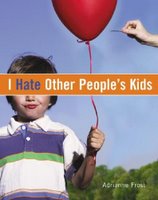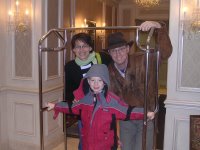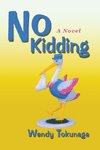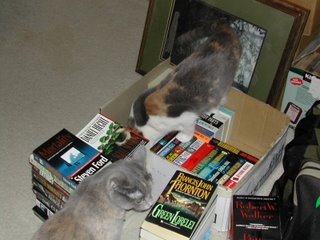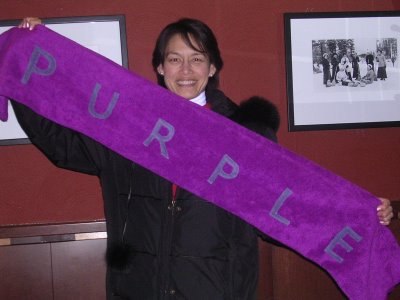No Kids, No Regrets
This is my first post for the website, and my first blog, ever. With those disclaimers in mind, here is my introduction. Read on and enjoy!
When I think of being childfree, I like to think the childfree lifestyle chose me, instead of the other way around. When I look back on my "grown-up" daydreams as a kid, I realize they didn't involve having kids of my own. I dreamt of living on a ranch with a flock of animals to tend to, flowers and trees to nurture, and maybe even some horses to ride. I would spend long hours in the sun tending to my garden, and making sure all the animals were fed, loved, and healthy. I also dreamt of being a professor at nearby UC Berkeley, helping students to discover ideas that they hadn't previously considered, and contributing to the rich academic community. While I didn't grow up to own a ranch or to change the world, I have remained true to my dreams of a life unencumbered by parenting.
I rolled my eyes when neighbors would bring their babies over for a visit, and would wrinkle my nose as my friends showed off newborn siblings. No thanks, I would tell them, I don't want to hold/diaper/feed your new brother or sister. I think my mother realized very early on she wouldn't be a grandmother on my account. One afternoon, my quiet time of reading in my room was blown to bits by the paint-peeling wail of a visiting neighbor's baby. I tossed my book aside, came out into the living room, put my hands on my hips and said "Would someone please shut that baby UP?!" I spun on my Mary Janes and flounced out of the room. I was about 7. Yep, destiny taps you on the shoulder early in life and invites you to dance.
I was 11 years old when I read Ellen Peck's The Baby Trap. It blew my mind and set me free from the cultural imperative to reproduce. As I moved forward into my 20's and 30's, I coped with the loneliness of my choice (friends were reproducing like rabbits then) and took comfort in the company of others who felt the way I did.
I read the works of Elinor Burkett, Leslie Lafayette, Mardy Ireland and other CF women who I saw to be very powerful role models. I took action and spoke out on pronatalism in our society and in the media, and the harmful messages that came with it. I have my bad days, sure. They stem from having dealt with ignorant comments/stereotypes, armchair psychoanalysis ("You don't have kids because of childhood trauma"), and other ignorant, rude behavior.
I cringe when some parents assume their familial status makes them morally superior. Hey, we all come into the world the same way: Cold, naked, and without kids. So I don't get it. In all seriousness, every day I'm grateful I listened to that scrappy kid back when who knew parenting was not for her, and I'm grateful for my choice today as a grown adult, living a life of clarity and of no regrets.
